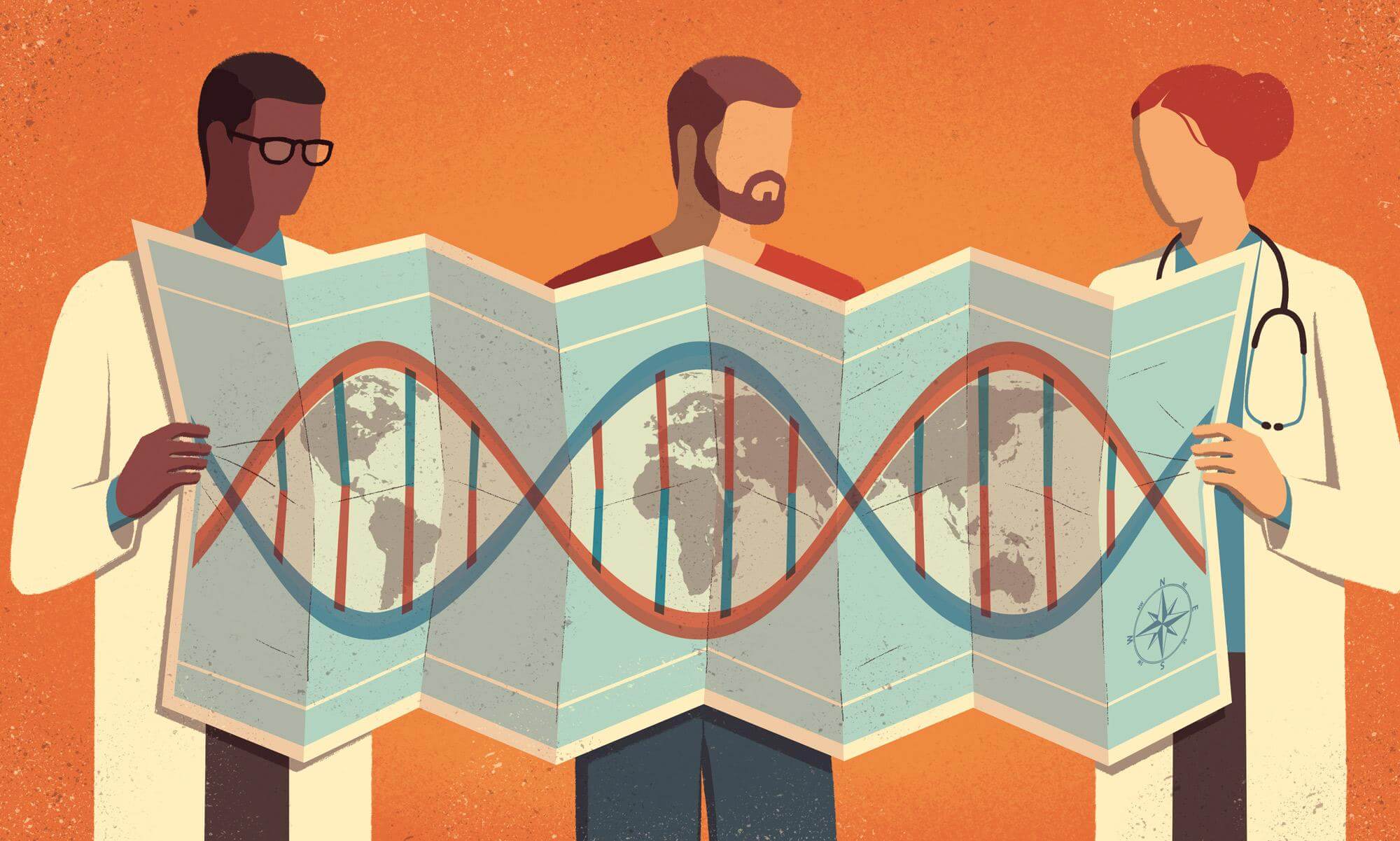 |
| Image taken from: geneticliteracyproject.org |
Compiled
by: Sean Lemuel L. Santos (Hybrizyme)
The field of genetics has made
great strides in shaping the society that we live in today. From gene therapy
to genetic engineering, genetics played a very crucial role in solving the
greatest problems of humanity. In this article,
we compiled several insights from various genetics professors in the University
of the Philippines–Los Banos on the importance of the fields in genetics to
our society.
Quantitative
Genetics
“Traits
that are controlled by many genes and highly affected by the environment are
called quantitative traits. These traits are studied in Quantitative Genetics.
Traits like height and obesity in humans are examples of quantitative traits.
Height is controlled by many genes and can be affected by nutrition and health
condition while the child is growing. Obesity can also be affected by nutrition
and lifestyle. Obesity results from a complex interaction between diet and
physical activity. How important is quantitative genetics in humans? If the
genes for obesity are present in your family, then you need to regulate your
food intake and at the same time regular exercise is a must. If you want to
have taller children, find someone who is taller than you. Provide your child
proper nutrition, good health condition and expose your children to proper
physical activity. Multiple genes + environmental factors = quantitative
traits.”
– Dr. Merlyn S. Mendioro
Director, Institute of Biological Sciences
University of the Philippines-Los Banos
Microbial Genetics
“Microbes, being excellent model organisms for
biochemical and genetic studies, have made enormous contributions to various
aspects of basic and applied sciences. Through rapid advancements in microbial
genetics, novel research strategies have given rise to new applications that
have a positive impact on humans and society. Some applications include new
methods of treating or preventing diseases through drug discovery and gene
therapy, solving world hunger by increasing agricultural and livestock
productivity through development of high-yield and/ or drought- /
flood-resistant plant varieties and disease-free animals, and establishing a
sustainable, carbon-neutral energy production systems.”
– Dr. Walter A. Laviña
Microbiology Division
Institute of Biological Sciences, UPLB
Population Genetics
“Since population genetics attempts to estimate
the amount of variation present in a population, predict its pattern and
changes overtime, population genetics is actually at the core of evolution and
speciation. This allows us to understand how individuals in a population adapt
in their environment and their chance of survival in the event of natural
selection.”
– Prof. Joan Christine
O. Adajar
Genetics and Molecular
Biology Division
Institute of Biological Sciences, UPLB







0 Comments